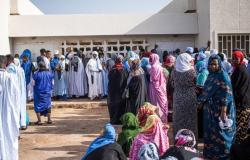France– A new dengue vaccine has been prequalified by theWorld Health Organization (WHO) on May 10, 2024. Prequalification means that the vaccine meets WHO standards for quality, safety and effectiveness. TAK-003 is the second dengue vaccine to be prequalified by the WHO [1]. Developed by Takeda, the vaccine is a live attenuated vaccine containing weakened forms of all four serotypes of the virus that causes dengue.
2-dose regimen
“The prequalification of TAK-003 is an important step in expanding global access to dengue vaccines, as it can now be purchased by organizations across the United Nations system, including UNICEF and PAHO” , declared the Dr Rogerio GasparDirector of the Regulatory and Prequalification Department at WHO.
WHO recommends using TAK-003 in children aged 6 to 16 years in areas with high intensity of dengue transmission. The vaccine should be administered in a 2-dose schedule, with an interval of 3 months between doses.
The WHO prequalification list also includes the CYD-TDV dengue vaccine which was developed by Sanofi Pasteur.
“With only two dengue vaccines prequalified to date, we look forward to other vaccine manufacturers presenting new vaccines for us to evaluate, so we can ensure that all communities in need receive vaccines ” added Rogerio Gaspar.
Dengue cases are spreading geographically
Dengue is a vector-borne disease transmitted by the bite of an infected mosquito. Severe dengue is a life-threatening complication that can develop from infection with the dengue virus.
There are an estimated 100 to 400 million cases of dengue worldwide each year, with 3.8 billion people living in countries where the disease is endemic, most of which are in Asia, Africa and the Americas. The year 2023 saw the highest number of dengue cases ever reported, with the WHO Region of the Americas reporting 4.5 million cases and 2300 deaths. Dengue cases are likely to increase and expand geographically due to climate change and urbanization. In France, between January 1 and April 19, 2024, 1,679 cases of imported dengue fever were notified to Public Health France compared to 131 over the same period in 2023.
Follow Medscape in French on Twitter.
Follow theheart.org | Medscape Cardiology on Twitter.
Sign up for Medscape newsletters : select your choices






